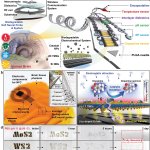
News • Neurology
Biodegradable implant to monitor brain chemistry
A wireless sensor could offer doctors a way to monitor changes in brain chemistry without requiring a second operation to remove the implant.

A wireless sensor could offer doctors a way to monitor changes in brain chemistry without requiring a second operation to remove the implant.
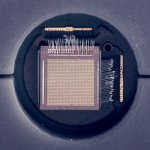
Nanoelectronics and digital technologies company Imec presents a proof-of-concept for determining arterial stiffness, a risk marker for cardiovascular diseases such as stroke and heart failure, and monitoring blood pressure. Imec’s approach uses an ultrasound sensor to measure the central pulse wave velocity. Measuring pulse wave velocity closer to the heart is also a more reliable proxy for…

Chronic illnesses can have a dramatic impact on a patient's later life. An early diagnosis of such diseases opens up the possibility of taking medical action in good time.

Research and innovation hub in nanoelectronics and digital technologies, imec, announced elPrep5, the newest version of its software platform for DNA analysis. Obtaining identical results, elPrep5 is eight to 16 times faster than the genome analysis toolkit (GATK) — the widely-accepted standard reference. The imec platform encompasses the full analysis pipeline from data preparation to variant…

Nanoelectronics and digital technologies R&D and innovation hub Imec recently received NASA funding to test a new technology in a gravity-free environment. Eventually, this will enable astronauts to perform blood tests to monitor their health. We discussed the project and technology with Nicolas Vergauwe, CEO of miDiagnostics, the Leuven firm that developed the diagnostic device, and Susana B…
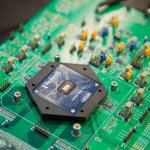
Roswell Biotechnologies, Inc., a manufacturer of molecular electronics sensor chips, and imec, a research and innovation hub in nanoelectronics and digital technologies, announced a partnership to develop the first commercially available molecular electronics biosensor chips. These chips are the brains behind Roswell Technologies' new platform for DNA sequencing, to support precision medicine,…
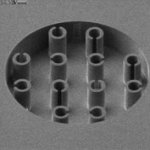
Evonetix, a synthetic biology company developing a desktop platform for scalable, high-fidelity and rapid gene synthesis, announced it has partnered with imec, a world-leading research and innovation hub active in the fields of nanoelectronics and digital technologies, to increase production of Evonetix’s proprietary microelectromechanical systems (MEMS)-based silicon chips, enabling the…

Today, on the occasion of the international DNA day, imec, a world-leading research and innovation hub in nanoelectronics and digital technologies, and its partners revealed their Genome Analytics Platform (GAP) platform, a unique platform that can perform a full genome analysis of 48 samples in only 48 hours and at an acceptable cost. The platform paves the way to genome sequencing as a daily…
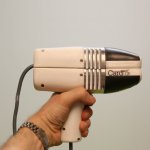
Researchers have developed a prototype medical device based on silicon photonics for the screening of arterial stiffness and for the diagnosis of cardiovascular diseases such as arterial stenosis and heart failure. This is a cooperation between imec, the world-leading research and innovation hub in nanoelectronics and digital technology and Ghent University, together with Medtronic and other…
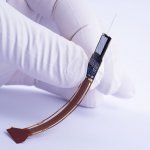
Imec, the world-leading research and innovation hub in nanoelectronics and digital technologies, released and is making available its state-of-the-art high-density neural probe, Neuropixels, to the global neuroscience research community. With almost a thousand electrodes, and 384 recording channels on a single shank, the Neuropixels probe provides an unprecedented resolution for mapping brain…

New research, led by the University of Southampton, has demonstrated that a nanoscale device, called a memristor, could be used to power artificial systems that can mimic the human brain.

At the IEEE International Electron Devices Meeting 2015, world-leading nanoelectronics research center imec, KU Leuven, and Neuro-Electronics Research Flanders (NERF, set up by VIB/KU Leuven and imec) presented a set of silicon neural probes that combine 12 monolithically integrated optrodes using a CMOS compatible process.

UK scientists are developing a hand-held testing device for use at the point of care and provide a disease diagnosis on the same day.

Scientists in the UK are working to develop a hand-held testing device to provide same day diagnosis from a patient’s bedside. The device will use disposable cartridges and utilise printed circuit board technology (PCB) that will allow a fast and low-cost diagnosis.

imec, the European research centre for nanoelectronics, has linked with Johns Hopkins University in Baltimore, USA, to develop the next generation of highly miniaturised medical tools.

How do our brains combine information from the external world (sensory stimulation) with information on our internal state such as hunger, fear or stress?